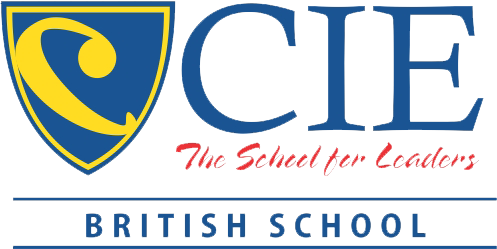Programs of Education – Basic Education
CIE British School provides a comprehensive and globally-focused education within our Basic Education program, designed to nurture students from their earliest years through to their preparation for higher education. Our curriculum is designed to foster a love of learning, develop critical thinking skills, and empower students to become responsible and engaged global citizens.
Our Basic Education program is structured into the following key stages:
Early Years
Our Early Years program provides a nurturing and stimulating environment where children aged 2 to 5 years old embark on their educational journey. We follow a play-based curriculum that focuses on:
- Developing foundational skills in literacy and numeracy through engaging activities.
- Promoting social and emotional development, encouraging cooperation, communication, and self-confidence.
- Fostering creativity and curiosity through exploration and discovery.
- Building physical skills through active play and movement.
- Introducing children to the world around them through thematic units and hands-on experiences.
We create a safe and supportive atmosphere where each child can learn at their own pace and develop a positive attitude towards learning.
Primary School
Our Primary School program caters to students aged 5-12 years old and builds upon the foundation established in Early Years. We provide a broad and balanced curriculum that encompasses:
- Core subjects: English, Mathematics, and Science.
- Development of essential skills: critical thinking, problem-solving, communication, and collaboration.
- A range of learning experiences: inquiry-based learning, project-based learning, and technology integration.
- Character development: fostering values such as respect, responsibility, and empathy.
- Preparation for secondary education: ensuring students have a strong academic foundation and the necessary skills to succeed in Junior High.
- Assessment: Cambridge Primary Checkpoint and Cambridge English Young Learners (Pre A1 Starters, A1 Movers, A2 Flyers), A2 Key, B1 Preliminary.
We strive to create a dynamic and engaging learning environment that encourages students to become independent learners and active participants in their education.
Junior High School
Junior High School, for students aged 12-16 years old serves as a crucial transition period, bridging the gap between primary and senior high education. Our program focuses on:
- A challenging and rigorous curriculum: building upon core subjects and introducing more specialized areas of study.
- Developing advanced academic skills: research, analysis, critical thinking, and effective communication.
- Exploring diverse interests: offering a range of elective subjects and extracurricular activities.
- Fostering personal and social growth: promoting independence, responsibility, and leadership skills.
- Preparing for Senior High School: guiding students in making informed decisions about their academic pathways.
- Assessment: Cambridge Lower Secondary Checkpoint, IGCSE and Cambridge English B2 First, C1 Advanced.
We aim to empower students to become confident, self-directed learners who are well-prepared for the challenges of Senior High School and beyond.
Senior High School
Our Senior High School program, for students aged 16-18 years old, prepares students for success in higher education and their chosen careers. We offer a variety of academic tracks and pathways, including:
- Academic Track: STEM (Science, Technology, Engineering and Mathematics), ABM (Accounting, Business, and Management)
- Rigorous academic preparation: focusing on in-depth subject knowledge and advanced skills.
- University and career guidance: providing support and resources to help students make informed decisions about their future.
- Opportunities for specialization: allowing students to pursue their passions and develop expertise in specific fields.
- Development of essential life skills: critical thinking, problem-solving, collaboration, communication, and ethical decision-making.
- Assessment: IGCSE, A-Levels
We are committed to providing a supportive and challenging environment that empowers students to achieve their full potential and become successful, responsible, and engaged global citizens.
